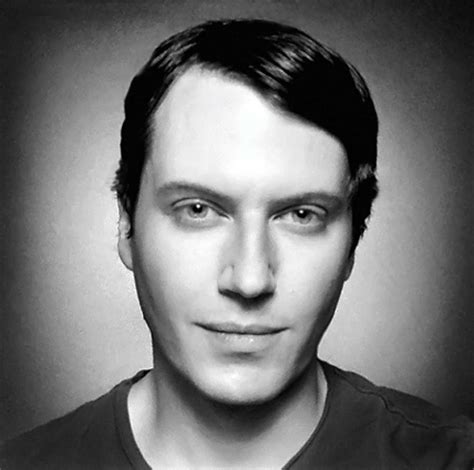A Quote by Rainer Werner Fassbinder
People often criticize my films for being pessimistic; there are certainly many reasons for being pessimistic but I don’t see my films that way. They’re founded in the belief that revolution doesn’t belong on the cinema screen but outside in the world. Never mind if a film ends pessimistically but exposes certain mechanisms clearly enough to show people how they work and the ultimate effect is not pessimistic. My goal is to reveal such mechanisms in a way that makes people realize the necessity of changing their own reality.
Quote Topics
Related Quotes
I laughed. “You’re too young to be so … pessimistic,” I said, using the English word. “Pessi-what?” “Pessimistic. It means looking only at the dark side of things.” “Pessimistic … pessimistic …” She repeated the English to herself over and over, and then she looked up at me with a fierce glare. “I’m only sixteen,” she said, “and I don’t know much about the world, but I do know one thing for sure. If I’m pessimistic, then the adults in this world who are not pessimistic are a bunch of idiots.
I am pessimistic, I think that's the best way to be, because if you're always expecting the best - the best doesn't always happen. Nine times out of 10 it doesn't. I'm surprised when things go smoothly. I don't know what's wrong with being pessimistic - unless you are such a pessimist that you don't do anything.
Snowpiercer has both [optimistic and pessimistic]. It was essentially optimistic. The most pessimistic was my part, because of his knowledge. He knows how it started. The status quo, he knows, has to be maintained, otherwise there is no chance. He knows that this revolution is completely understandable and is also commendable. He also knows the negatives. In the end, that's not a very positive position to be in.
When asked if I am pessimistic or optimistic about the future, my answer is always the same: If you look at the science about what is happening on earth and aren’t pessimistic, you don’t understand data. But if you meet the people who are working to restore this earth and the lives of the poor, and you aren’t optimistic, you haven’t got a pulse.
I don't want to be a grumpy old man or too pessimistic, because if I have a chance, I would prefer to watch a film in the cinema with an audience on a big screen instead of watching it on a cell phone. It's a very different experience, but somehow I think this form will have its own future and life.
I think one of the reasons younger people don't like older films, films made say before the '60s, is that they've never seen them on a big screen, ever. If you don't see a film on a big screen, you haven't really seen it. You've seen a version of it, but you haven't seen it. That's my feeling, but I'm old-fashioned.





































